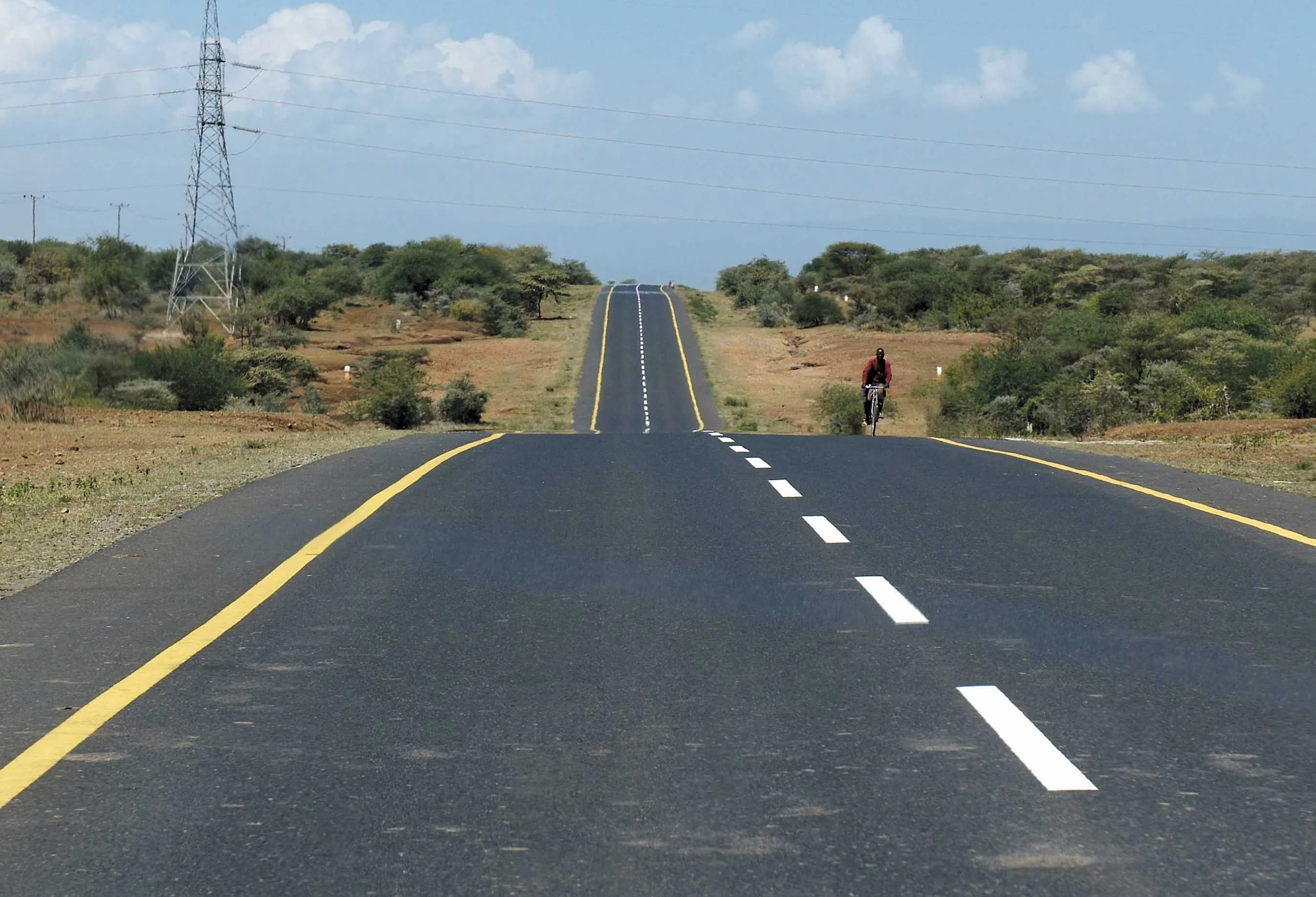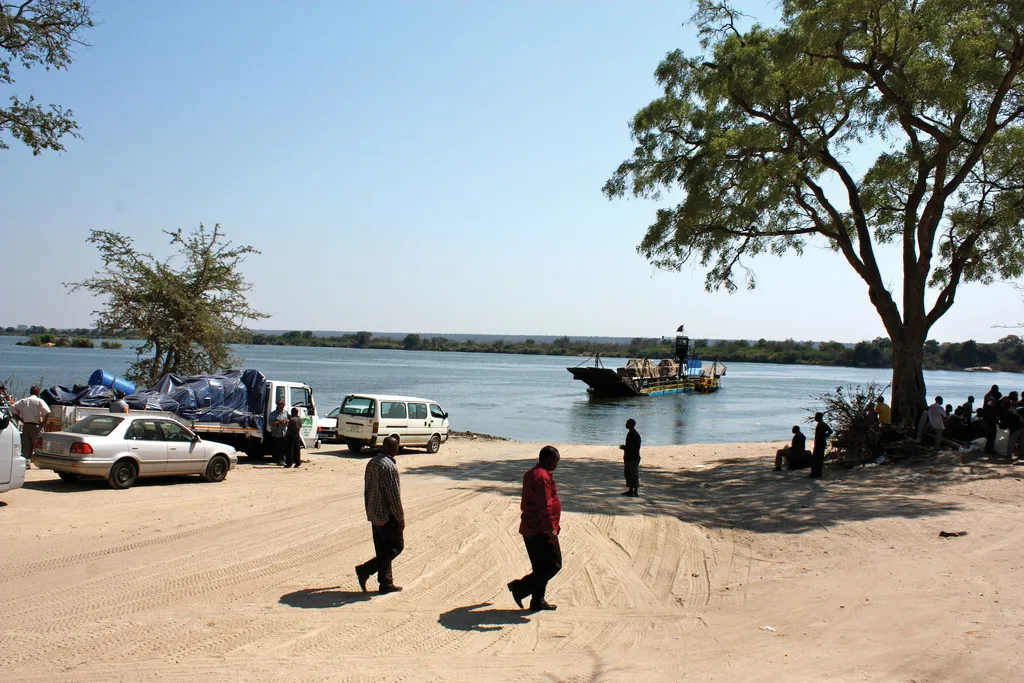Crying out for consistency
Getting hold of the right product, or any product at all, is often the challenge, as delegates to the Argus Africa Bitumen conference heard
Many parts of Africa have ambitious road building plans for the next few decades. But clients and contractors are facing problems with the quality and supply of bitumen, delegates at the Argus Africa Bitumen conference were told.
If there was one overriding message to come out of the conference, held in Dar Es Salaam, Tanzania in Feb
May 8, 2015
Read time: 4 mins

Getting hold of the right product, or any product at all, is often the challenge, as delegates to the Argus Africa Bitumen conference heard
Many parts of Africa have ambitious road building plans for the next few decades. But clients and contractors are facing problems with the quality and supply of bitumen, delegates at the7582 Argus Africa Bitumen conference were told.
If there was one overriding message to come out of the conference, held in Dar Es Salaam, Tanzania in February, it was the need for reliable supplies and quality of bitumen. Several of the speakers spoke of the challenges faced by contractors who are struggling to get hold of the right product, or indeed any product at all in some cases.
Jacob Ruwa, executive director of the Kenya Road Boards said that suppliers provided “just any” bitumen which was often not suitable for the tropical environment, or came from many sources leading to inconsistencies. “There are too many brokers masquerading as bitumen suppliers,” he said.
Ruwa called on the industry to come up with appropriate bitumen grades which would slow down the effects of ageing and address the issues of temperature and stress resistance.
Thomson Banda, senior manager, research and development with Zambia’s Road Development Agency echoed Ruwa’s concerns. He told the conference: “The need for consistent supply of high quality bitumen to meet the forecasted demand cannot be over-emphasised.”
EAC selects projects which will benefit all its participating countries and has earmarked ten strategic road corridors with between US $20bn and $25bn to be invested over the next 10 years. “Regional projects are attractive to development partners and financiers on account of economies of scale,” he said in his presentation.
Funding comes from agencies such as the1586 African Development Bank, 2332 World Bank and 1116 European Union, said Sezibera, as well as from countries with bilaterial investment treaties, mostly China, India, Japan and the US. Regional standards and specifications for bitumen will be adopted soon, he added.
Ruwa spoke about Kenya’s Vision 2030 which aims to make the country globally competitive and prosperous by 2030. “Attainment of Vision 2030 goals will depend on the quality of our road network,” he said.
In the financial year 2014-2015, around US $1.5 billion will be allocated to the roads sector, one-fifth of which will be spent on maintenance, with the rest allocated to rehabilitation and upgrade. Ruwa outlined eight major projects, five of which are underway.
Zambia too has major programmes underway. A 10-year, US$4.5 billion programme will upgrade 8,000km of roads to bituminous surfaces; a $348 million contract to construct and rehabilitate 400km of road in Lusaka City is underway; and a programme to improve 400km of road in Ndola, Kitwe, Mufulira, Chingola, Kalulushi and Luanshya is currently under procurement.
George Mturi a senior researcher at research body CSIR made the point that penetration and viscocity grading for bitumen was insufficient to characterise many binders, particularly PMBs. Performance grading, as used in the US and Middle East is the answer, he said.
The Southern Africa Bitumen Association (Sabita) has sponsored the development by CSIR of a new method of mix design which looks at performance-related rather than empirically-based design. Sabita Manual 35: Asphalt mix design for South Africa, will be published later this year.
Trevor Freestone CEO, Zambia, of contractor Hillary Construction gave the conference a low-down on the types of polymer modification available and where they could be used to benefit. And Andre Botha, managing director of Bitumen Supplies and Services (BSS), outlined his company’s experience of supplying PMB within the continent.
Emulsions and their importance for pavement preservation solutions were also emphasised by several speakers. Nazir Alli, CEO of the South African National Roads Agency (SANRAL) touched on research his organisation is doing into the best practices and materials for Winter Seal.
Coming back to the theme of reliability and consistency of supply, Alli finished his presentation with a plea to South Africa’s refineries to avoid scheduling shutdowns close to high-demand periods and to cover for each other during shutdowns.
Many parts of Africa have ambitious road building plans for the next few decades. But clients and contractors are facing problems with the quality and supply of bitumen, delegates at the
If there was one overriding message to come out of the conference, held in Dar Es Salaam, Tanzania in February, it was the need for reliable supplies and quality of bitumen. Several of the speakers spoke of the challenges faced by contractors who are struggling to get hold of the right product, or indeed any product at all in some cases.
Jacob Ruwa, executive director of the Kenya Road Boards said that suppliers provided “just any” bitumen which was often not suitable for the tropical environment, or came from many sources leading to inconsistencies. “There are too many brokers masquerading as bitumen suppliers,” he said.
Ruwa called on the industry to come up with appropriate bitumen grades which would slow down the effects of ageing and address the issues of temperature and stress resistance.
Thomson Banda, senior manager, research and development with Zambia’s Road Development Agency echoed Ruwa’s concerns. He told the conference: “The need for consistent supply of high quality bitumen to meet the forecasted demand cannot be over-emphasised.”
Many roads ahead
With many impressive road building programmes on the drawing board, these issues need to be addressed. Richard Sezibera, secretary general of the East African Community (EAC), an intergovernmental body for Kenya, Uganda, Tanzania, Rwanda and Burundi told conference goers of infrastructure plans for roads, railways and ports.EAC selects projects which will benefit all its participating countries and has earmarked ten strategic road corridors with between US $20bn and $25bn to be invested over the next 10 years. “Regional projects are attractive to development partners and financiers on account of economies of scale,” he said in his presentation.
Funding comes from agencies such as the
Ruwa spoke about Kenya’s Vision 2030 which aims to make the country globally competitive and prosperous by 2030. “Attainment of Vision 2030 goals will depend on the quality of our road network,” he said.
In the financial year 2014-2015, around US $1.5 billion will be allocated to the roads sector, one-fifth of which will be spent on maintenance, with the rest allocated to rehabilitation and upgrade. Ruwa outlined eight major projects, five of which are underway.
Zambia too has major programmes underway. A 10-year, US$4.5 billion programme will upgrade 8,000km of roads to bituminous surfaces; a $348 million contract to construct and rehabilitate 400km of road in Lusaka City is underway; and a programme to improve 400km of road in Ndola, Kitwe, Mufulira, Chingola, Kalulushi and Luanshya is currently under procurement.
New technologies
As well as mapping out the scale of road building needed in parts of Africa, the conference also explored emerging practices and technologies in the region. Several presentations included information on South Africa’s move towards performance-based specifications for asphalt mix designs.George Mturi a senior researcher at research body CSIR made the point that penetration and viscocity grading for bitumen was insufficient to characterise many binders, particularly PMBs. Performance grading, as used in the US and Middle East is the answer, he said.
The Southern Africa Bitumen Association (Sabita) has sponsored the development by CSIR of a new method of mix design which looks at performance-related rather than empirically-based design. Sabita Manual 35: Asphalt mix design for South Africa, will be published later this year.
Trevor Freestone CEO, Zambia, of contractor Hillary Construction gave the conference a low-down on the types of polymer modification available and where they could be used to benefit. And Andre Botha, managing director of Bitumen Supplies and Services (BSS), outlined his company’s experience of supplying PMB within the continent.
Emulsions and their importance for pavement preservation solutions were also emphasised by several speakers. Nazir Alli, CEO of the South African National Roads Agency (SANRAL) touched on research his organisation is doing into the best practices and materials for Winter Seal.
Coming back to the theme of reliability and consistency of supply, Alli finished his presentation with a plea to South Africa’s refineries to avoid scheduling shutdowns close to high-demand periods and to cover for each other during shutdowns.









